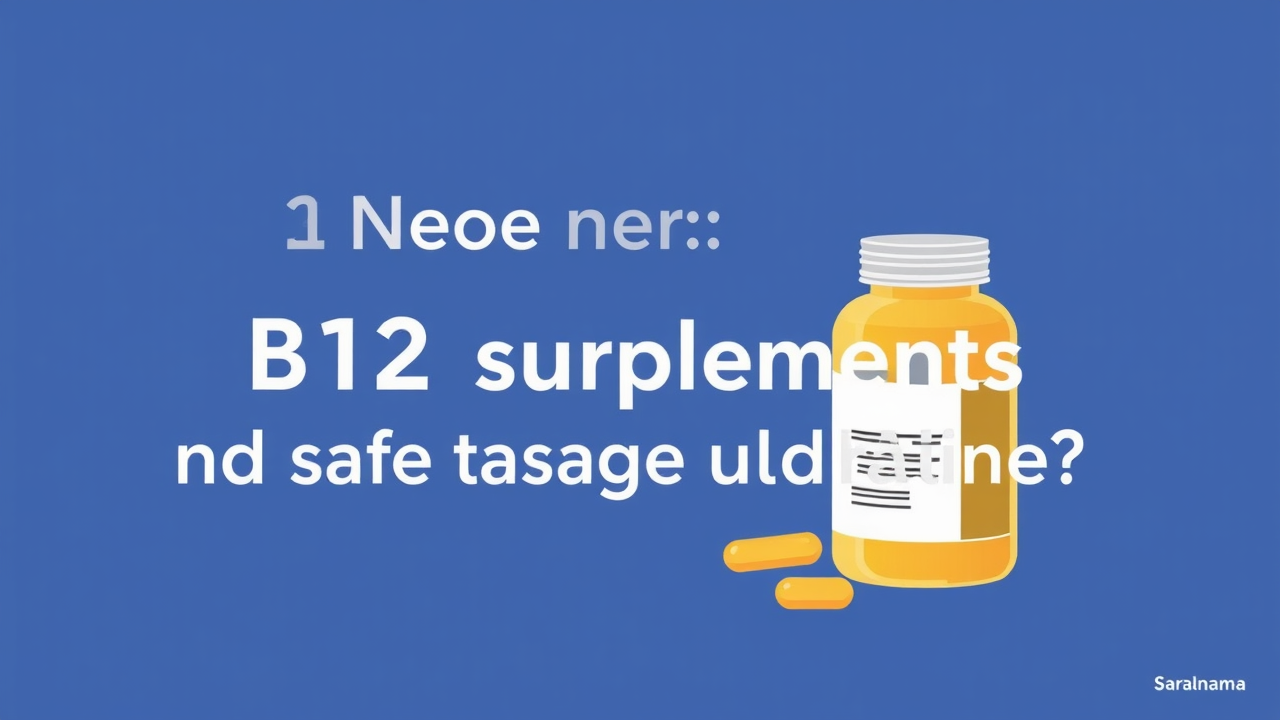Vitamin B12 is a water-soluble vitamin that plays a crucial role in nerve health, red blood cell production, and brain function. Many people wonder if daily supplementation is safe. According to medical experts, the body absorbs what it needs and eliminates excess through urine, making daily intake generally safe for most individuals. However, not everyone requires supplementation. People who consume fish, poultry, eggs, or dairy usually get sufficient B12 from their diet. Vegetarians, vegans, older adults, and those with absorption issues are at higher risk of deficiency and may benefit from supplements. While toxicity is rare, very high doses can occasionally cause side effects like acne-like breakouts, dizziness, or stomach discomfort. The safest approach is to check B12 levels if symptoms like fatigue, numbness, or balance issues occur, and then consult a doctor before starting any supplementation routine.

Who Needs B12 Supplements and Safe Dosage Guidelines
Not everyone needs vitamin B12 supplements. Many individuals obtain adequate amounts through diet, particularly those who consume animal products like fish, poultry, eggs, and dairy. However, vegetarians and vegans face higher deficiency risk since B12 is predominantly found in animal-based foods. Older adults, people with gut absorption problems, and those on long-term medications like metformin may also require supplementation. While the body generally eliminates excess B12, very high doses can sometimes trigger side effects including acne-like breakouts, dizziness, or stomach discomfort. Individuals with kidney disease should avoid taking it without medical guidance. The recommended approach is testing B12 levels first if symptoms like persistent fatigue, numbness, or balance issues appear. Doctors may prescribe tablets or injections based on deficiency levels. Supplements should complement, not replace, a balanced diet.
Source: Link
